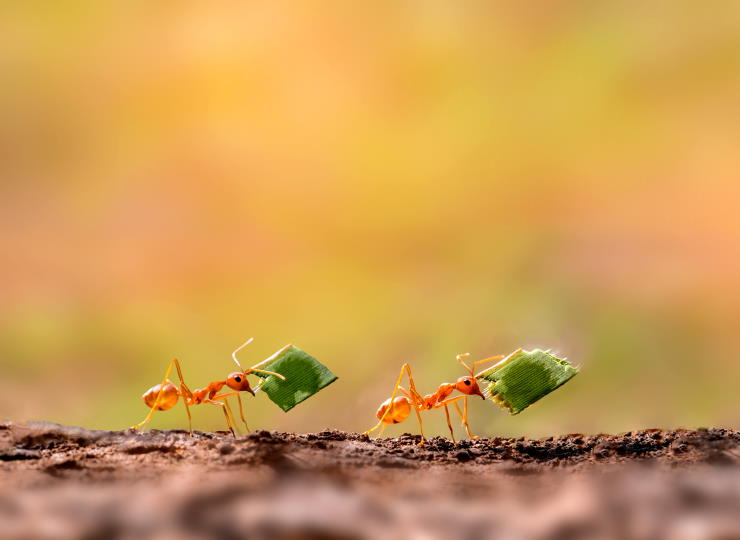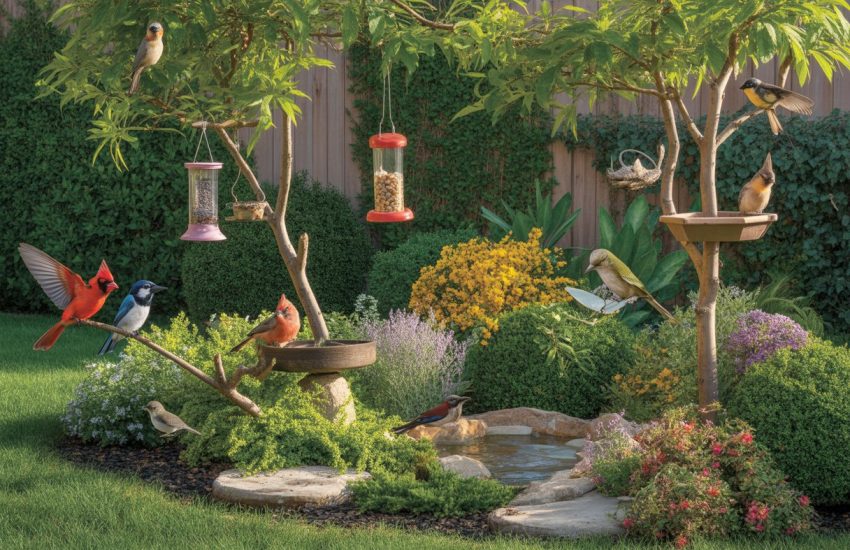How to Keep Ants Out of Raised Garden Beds
Last updated: February 10, 2026
Introduction
All of us probably have seen the ants which are gathered in gardens. Ants do love living in garden beds since they are very suitable and efficient for them. However, are they good or bad for gardens? Are they friends or enemies of plants and planters? There are a lot of answers to these questions.
Some scientists and researchers think that ants are detrimental to gardens and plants, whereas others think that these insects have some advantages. This article focuses on the disadvantages of these ants and looks into some solutions for keeping ants out of raised garden beds. Therefore, the disadvantages of these ants will be mentioned first.
The Disadvantages of Ants in Garden Beds
Some ants do not lead to any problems, but some kinds of ants have direct or indirect adverse effects on gardens. Some disadvantages of having ants in garden beds are listed below.
Sap Farming: Ants can transport dangerous insects like mealybugs or aphids to the plants. These plants are very hazardous for plants since they can suck the sap. Ants can also protect these detrimental insects from predators, the only creature that can destroy these detrimental insects.
Tunneling: The ant colonies make tunnels to pave the way for transportation. These tunnels can be very harmful to the roots of garden plants. They can also weaken the strength of these roots.
Fire Ants: This ant variety is a rare type with direct adverse effects. Fire ants can create significant problems for gardeners, and they can bite them. Their bite is painful, so gardeners are advised to be careful about these ants.
Leaf Cutter Ants: Fortunately, these ants are not available in all climates. They are very common in warm climates. They harm people more severely in warm regions. Gardeners exposed to the invasion of leaf-cutter ants should take action quickly to prevent them from harming civilians.
Ant Hills: Ants are also harmful in causing hills and pavement cracks. It is depressing to see the cracks and spoilage caused by these ants. Therefore, keeping ants away from gardens is significant for providing a good-looking garden.
How To Keep Ants Out of Raised Garden Beds
There are various methods for keeping the ants away from grade beds and protecting plants from potential dangers which these ants can lead to. We can elaborate on these methods better by dividing them into two categories. These categories are organic methods which do not involve any chemical process, and natural methods, which can be applied more simply.
Organic Methods for Solving This Problem

This method is organic, and it does not include any process which is related to chemical materials. In this method, planters should be vigilant since they are expected to see an ant colony. When they see these ants, they should follow them to find their nest.
Planters are expected to observe these ants carefully and patiently during this process. After they see the nest, planters should take all ants out of their nest. They should keep taking them out until they are sure that the queen ant is taken out.
The hierarchy of ants is similar to bees because both of these animals have a queen. Queen bee and queeny ant. All other members work for these special members of the group. Therefore, ensuring that the queen ant is is very important for getting rid of these ants.
Planters should dig the earth as deep as they can to make sure that the queen ant is taken out. When planters take the queen ant out of the ant nest, they will notice that the other ants will also voluntarily leave the garden since they can not live in a place where their queen is not located.
Another method for getting rid of these ants is using worms. Worms are very effective in solving this problem because they can eat a lot of ants. This is mandatory for their nutrition. Hence, scientists and experts advise planters to put some worms in their gardens.
Other insects can feed on ants and kill them apart from worms. Planters can encourage these predators by putting some forages or bird nests next to their gardens. When some birds who can kill ants or feed on them see these forages and nests, they will probably come and eat those ants.
Natural Methods for Solving This Problem
These methods are more simple, and they are not toxic. They can be applied even in planters’ homes and gardens without getting any help. Some chemical materials and products can be used for applying these methods. Aspartam is one of these products which can be used for getting rid of ants.
Aspartams are little blue packages that are available on restaurant tables. Planters should sprinkle it around the hill. This product is poisonous to ants, and it harms the senses of ants. It Stimulates the brain cells of ants, and this causes their death. This is an effective solution, even if it is opposed by some people who think this process is too cruel to apply.
The final method for solving this problem is to purchase an orange peel spray or produce your orange peel spray. Orange peel has a natural content that does not harm soil and plants, whereas it is highly efficient for keeping ants away.
It is not also detrimental for vegetables or products which are cultivated in the garden. Orange peel spray is a natural product that can save planters from detrimental ants by dehydrating them. This dehydration process takes about 2 or, at most, three weeks.
Conclusion
All in all, ants lead to significant problems in garden beds. Therefore, planters look for some methods for getting rid of this problem. Scientists and experts suggest some ideas about this issue. The most effective methods suggested by these scientists and experts have been explained above.
These methods are tested and experienced by planters. The results of these tests and experiences are generally positive. Therefore, I advise gardeners and planters to use or apply one of these methods to solve the problem of detrimental ants in their garden beds.
You may also be interested in:


